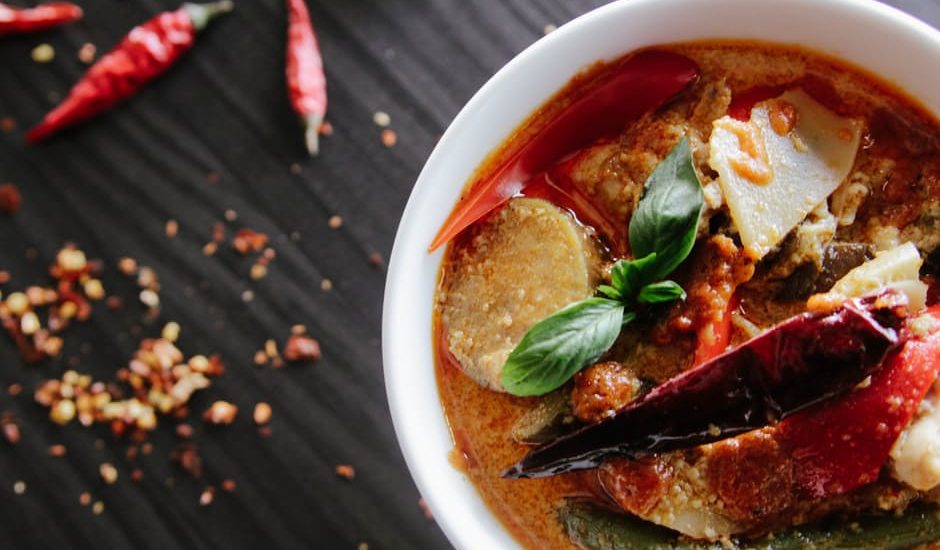Most of us, especially as Indians love our spicy food. We love the infusion of spices, peppers, garlic and ginger into our cuisines. Adding spices not only enhances taste but also the aroma of our food.
According to recent studies, the spice content in certain foods such as chilies, garlic, horseradish etc have beneficiary properties for our health. They help burn calories and aid in helping digestion.
But consuming spicy or hot food on a frequent basis has adverse side effects. Eating too much of spicy food at one go can also cause problems for the individual consuming it. The following points will give you an idea about how too much of spice content can disturb our system:
- Burning Sensation – When the food is consumed, the spice content aggravates the taste buds and burns the mouth linings. This creates an uncomfortable, burning sensation in the mouth. It is advised to consume food such as bread which will absorb the spices than drinking water which will just spread the compounds.
- Allergies – Sometimes, certain individuals have allergic reactions to the spicy food consumed. Their tongues form strange patterns as their taste buds are affected. This is not too serious as the allergies subside with time but it can still be very annoying for the individual. Though temporary, it may even affect their enjoyment of their regular meals.
- Gastritis – This is a serious problem that and cause a lot of pain and discomfort for the individual. The stomach naturally secretes acid to digest food. When spicy food is consumed, the stomach secretes more acid and this excess acid causes the inflammation of the stomach wall lining. In cases of acute gastritis, the individual can also suffer from vomiting, nausea, fever and diarrhea. Sometimes, blood can also be seen in the stool or vomit. In the case of chronic gastritis, the individual can suffer from ulcers caused due to extreme tissue inflammation.
- Acid reflux – acid reflux happens when the body cannot handle too much spice and it retaliates through belching. The gases emitted usually corrode teeth also. In the case of chronic acid reflux, it can result in oesophageal cancer, although this is very rare. Usually, high pepper content in food is associated with acid reflux, hence it is advisable to control the amount used in cooking.
- Bad Breath– bad breath or halitosis is common amongst those who consume spicy food regularly, especially with a lot of garlic content. Though this does not have major effects, it is indicative of gastric issues and can affect self esteem and social relationships.
- Insomnia – It is advised to avoid spicy food before sleeping. Spicy food increases the temperature in the body (which is why we sweat profusely after consuming it), and this excites the nervous system. The individual is then unable to fall asleep normally and may suffer from headaches due to insomnia. Hence, it is always better to avoid heavy, spicy food before bedtime and to drink cooling liquids such as milk before sleeping.
- Erosion of taste buds – The taste buds, after being exposed to the compounds in spicy food a lot, start eroding and soon lose their sensation. This may affect appetite for the individual. Often people make the mistake of thinking that their taste buds are getting used to the compounds in the food, but they are actually losing their potency in sensation.
- Loose stools – Spicy foods usually result in diarrhea for the individual. The chemical compounds in the food cause irritation to the stomach lining. Therefore, food moves quickly through the digestive tract and it results in loose and watery stools. As the compounds do not break down properly, they may cause a painful sensation to the person while being expelled.
- Aggravate other conditions – Eating too much spicy food can make already existing medical conditions worse. Heartburn, bowel disorders, ulcers and hernias are all further aggravated by these compounds.
- Piles– Spicy food does not cause piles. However, if you are already suffering from hemorrhoids, which get further inflamed and aggravated by the compounds in spicy food, then piles could occur. When the blood vessels in the anus or rectum get stretched under pressure, they swell and the veins get inflamed. This can be very painful for the person when they try to pass stool. It can also be very embarrassing for the individual to speak of this issue. There are ways to treat this. Piles Surgery is common and easily available in India. Most well-equipped hospitals offer this procedure performed by an experienced physician. The cost of the piles surgery varies according to the city and hospital chosen.

From the above, we can conclude that spicy food definitely has its benefits for health. But indulging in it on a frequent basis is not a good idea. If you see any bold in your stool after eating spicy food, then it is advisable to consult your physician. Drinking plenty of water helps soothe many aggravations and ensures the smooth functioning of the digestive and excretory systems.
Author Bio: Sushma is a Freelance Medical Writer. she has two years of experience in writing articles on Health. Here she explain the what happens if you eat too much spicy food.

